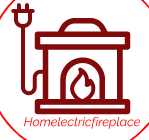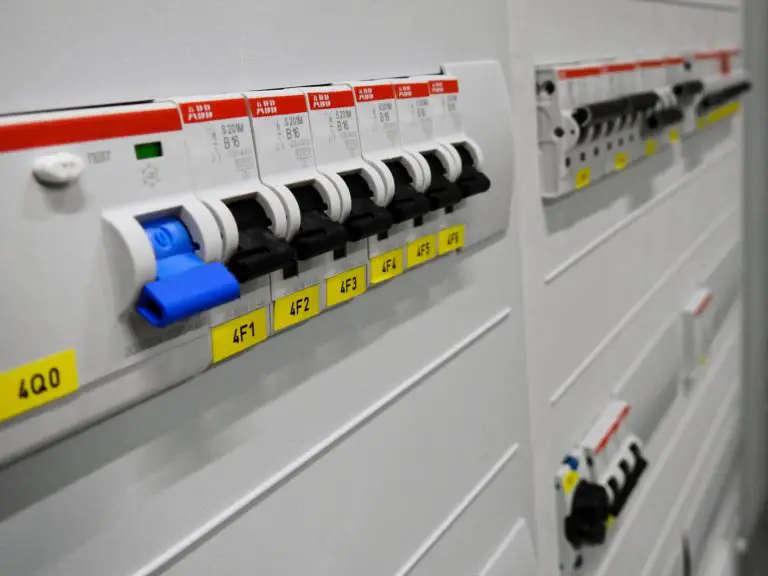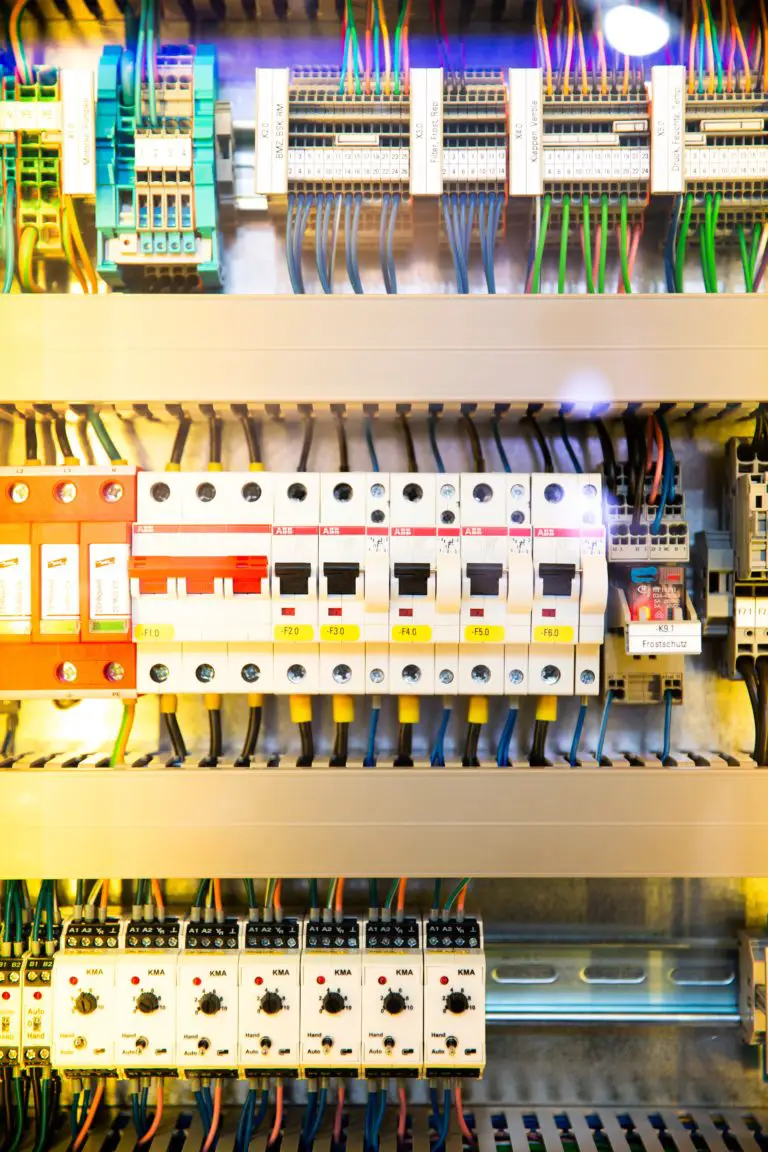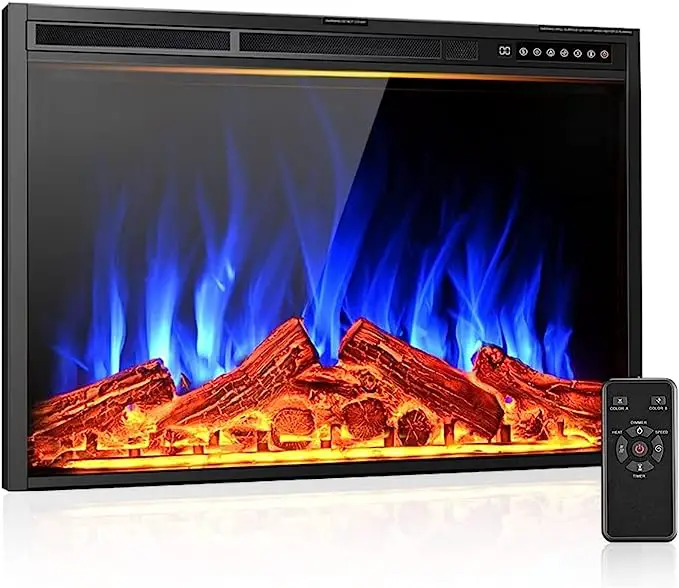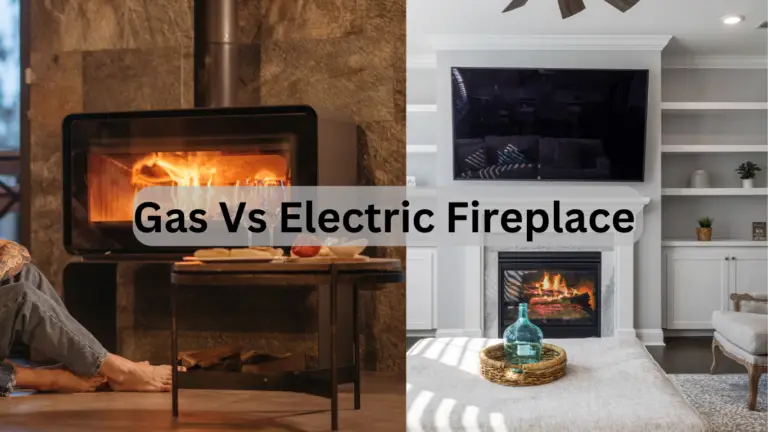Electric fireplace pros and cons
This post may contain affiliate links which means I may receive a commission for purchases made through links.

In recent years, electric fireplaces have become a completely new fireplace option, especially for adding supplemental heat to a single room. More notably, they act like a real fire as they emit heat and project realistic-looking flames.
Like any other electric unit though, these devices have their drawbacks as well. For that, it’s important to understand the electric fireplace pros and cons before you decide to add one to your home. Thankfully, that’s exactly what we’ll be discussing in this blog post to help you make an informed decision while looking for the best electric fireplace for your home.
Electric fireplace pros and cons
Benefits of an electric fireplace
-
Adds warmth & ambiance to any room.
An electric fireplace is a great way to add warmth and ambiance to any room. Also, you can use the unit to enhance your home’s decor, especially seeing that they’re available in various styles such as contemporary, glass, and traditional electric fireplaces. On the same note, they’re available in various shapes, sizes, and colors. This allows you to add ambiance and warmth to your living room or master bedroom in a way that fits in with your home’s decor. Better yet, they’re relatively flexible to install and even help to save space compared to traditional wood-burning or gas fireplaces.
-
Low cost & easy installation
Most electric fireplaces are extremely easy to install, making them a great option for DIYers. After all, you only need to plug the unit into a standard home electrical outlet and you’re set to go. Better yet, some models come with a remote control that you can use to adjust the temperature from anywhere in the room.
Some types of electric fireplaces, such as the freestanding models don’t cost anything to install. However, some models such as wall-mounted or electric fireplace inserts require some installation. Either way, you need to break the bank to install any type of electric fireplace as you can easily do the job yourself.
-
Safety
Another notable benefit of using electric fireplaces is that they’re safer than traditional wood-burning/ gas fireplaces. Specifically, there is no risk of a log rolling out of the fireplace since the flames are fake, preventing open fire hazards. Moreover, most components of electric fireplaces are usually cool to the touch, apart from the heat discharge vent which may become warm to the touch. For that, they don’t have exposed hot surfaces that can cause accidental burns, making them pets- and kids- safe.
On top of that, electric fireplaces leave a much smaller carbon footprint compared to gas or wood-burning fireplaces. This helps them to prevent carbon monoxide poisoning since they don’t emit harmful gases.
-
Electric fireplaces don’t require a vent or chimney
Unlike gas/ wood-burning fireplaces, electric fireplaces don’t need a vent or chimney since they don’t emit smoke or fumes. As a result, they’re much easier to install than a traditional fireplace and safe to use in any room. In addition, this gives you more flexibility as you can install them anywhere around your house. At the same time, they provide instant warmth with the push of a button, which makes them a great option for use in apartments or rooms that aren’t frequently used. More importantly, this means you can install them in any home, regardless of their construction or age.
-
Realistic flames
Flame technology used in electric fireplaces has advanced to a point where most models can generate very realistic-looking flame effects. Nonetheless, these flames are fake, making the units safe to use around pets and children as they don’t get extremely hot to the touch. Better yet, this allows you to enjoy the flames without turning the heater on, making them ideal for use even during the summer months.
-
Affordable
Electric fireplaces are relatively affordable compared to other types of fireplaces like wood-burning or gas models. For instance, a real wood stove fireplace can cost over $1000, while an electric fireplace can cost around $100. In addition, electric fireplaces will help you save money in the long run as they have lower running costs than other types of fuel. Plus, they allow you to heat a single room in your home without turning on the central HVAC system.
-
Efficiency
As mentioned earlier, an electric fireplace doesn’t need a special venting or chimney. Therefore, the device doesn’t lose heat through the vent or chimney as is the case with gas or wood-burning fireplaces. As a result, these units convert electricity to heat directly with an efficiency of up to 99%. Best of all, the unit gives you more control over the heat output as you can decrease or increase the heat level to ensure maximum comfort.
-
Require little maintenance
Compared to wood-burning and gas fireplaces, electric models require very little maintenance. In addition, their parts don’t experience corrosion or degradation since their flames aren’t real and don’t burn combustible fuels. The only maintenance that may come with these units is perhaps to change a blown light bulb every 2 -3 years and clean it periodically to ensure the vents are not blocked.
Drawbacks of electric fireplaces
Even with all the benefits we’ve mentioned above, an electric fireplace isn’t ideal for everyone. For instance, if you prefer a gas or wood-burning fireplace, an electric version will not be a suitable replacement. Other cons of electric fireplaces that may make you consider other options are;
-
Fake flame
Despite their realistic appearance, the flames produced by electric fireplaces are fake and look artificial as they’re generated using an array of LED lights and rotating mirrors. Moreover, they lack the popping and cracking or even the rustic smell of real burning wood. As a result, their overall ambiance will not live up to a real wood-burning fireplace.
-
Require electricity to run
Some homeowners use wood-burning fireplaces to provide supplemental heat to their homes during extreme cold or blizzards when the local electrical grid is down. Unfortunately, you can use an electric fireplace to heat your home during such circumstances as they require electrical power to function. So, if your home experiences regular power outages, you may be better off with a gas or wood-burning fireplace instead of an electric version.
-
Safety concerns
Electric fireplace models usually draw maximum power, which can overload the outlet if there are other appliances on the same circuit, causing the circuit or fuse to trip or blow. While this doesn’t happen too often, it’s important to have a dedicated circuit for your electric fireplace for safety reasons.
Also, avoid leaving something above or below the point where the unit releases hot air. For instance, you should not mount a TV over the top discharge point or put flammable objects like carpets under the bottom discharge point.
-
Shorter lifespan
Unlike infrared heaters, electric fireplaces are equipped with mechanical and moving electrical components. As a result, they have a relatively shorter lifespan than space heaters and other types of fireplaces like wood stoves. Even worse, most of these parts are not serviceable or replaceable if anything goes wrong. So, unless the faulty component is under warranty, you’ll have to buy a whole new electric fireplace.
-
Not ideal for heating the entire house
While electric fireplaces generate heat, they’re not ideal for heating the entire house. Instead, you can only use the unit to warm a single room or a section of a large room, just like space heaters. A space heater has a better capacity to heat a larger room than an electric fireplace, despite its relatively smaller size. For instance, an infrared heater can heat a room of up to 1000 sq ft, while an electric fireplace with a conventional fan system can only heat an area of about 400 sq ft.
-
Electric fireplaces can be noisy
Lastly, when learning how electric fireplaces work, you’ll note that most models have conventional fan systems that force warm air out into the room. Unfortunately, some of these blowers tend to be noisy, although that will depend on the electric fireplace model you’re using.
Conclusion; electric fireplace pros and cons
Overall, like any other electrical appliance, an electric fireplace has both pros and cons. Some notable benefits include; high efficiency, low running cost, and easy installation. On the other hand, the main drawbacks will depend on how much your home needs as well as your personal preferences. Either way, I hope you’ve learned something valuable from this article to help you determine whether an electric fireplace is a great option for your home.
